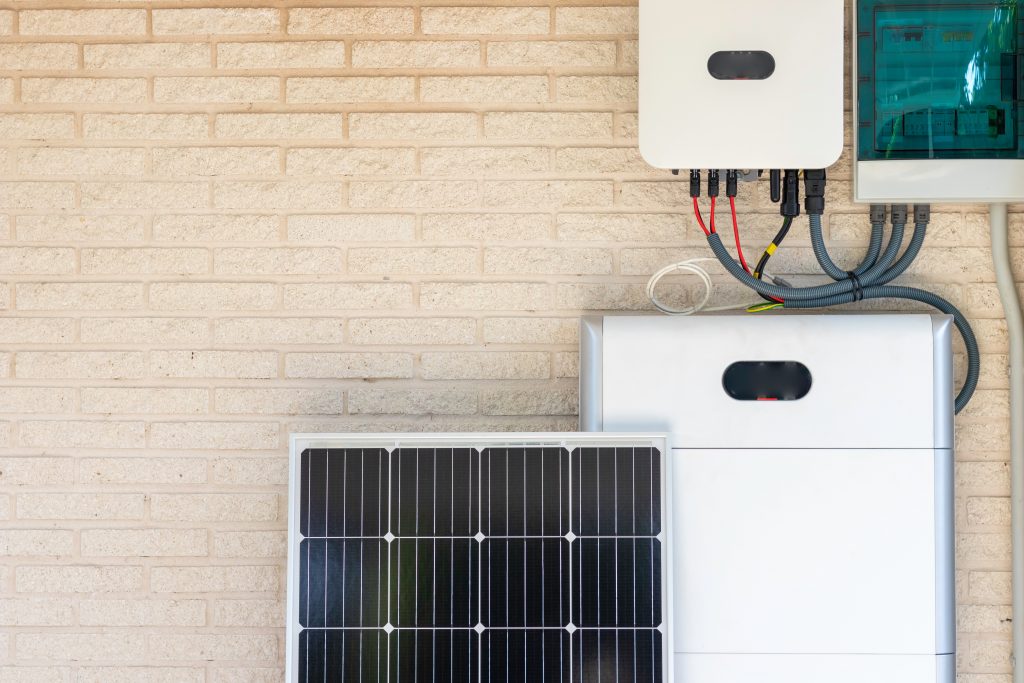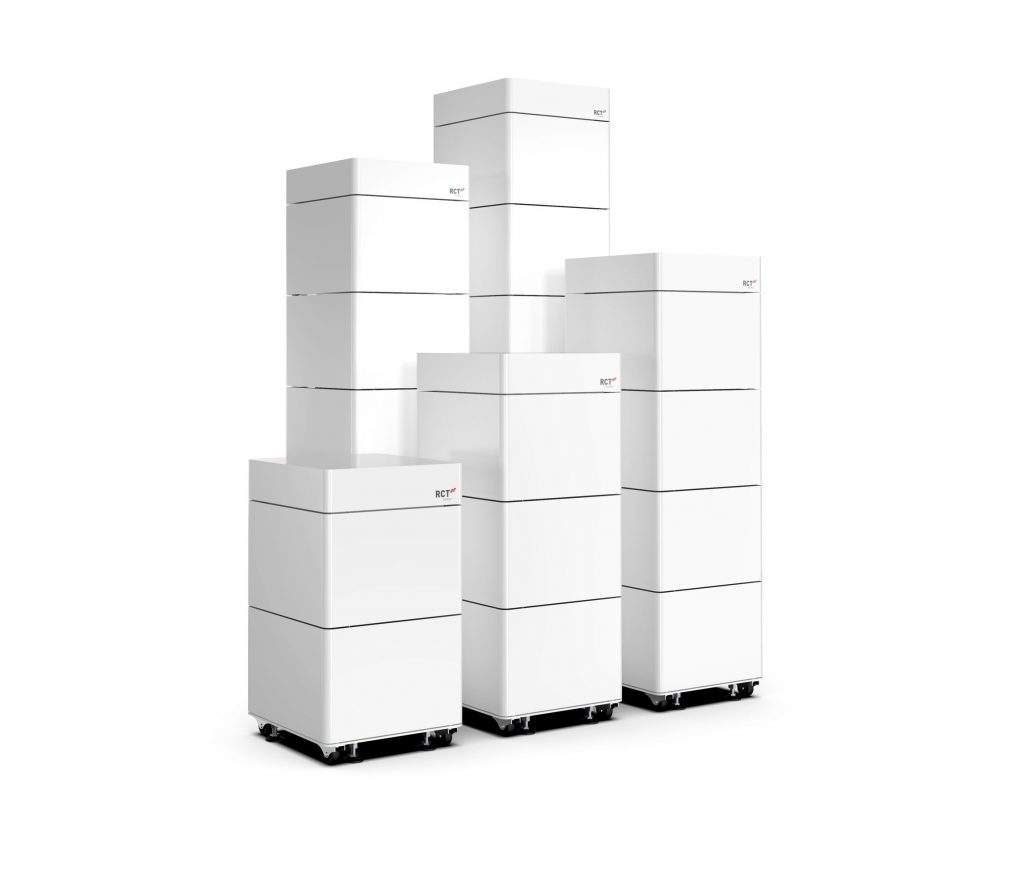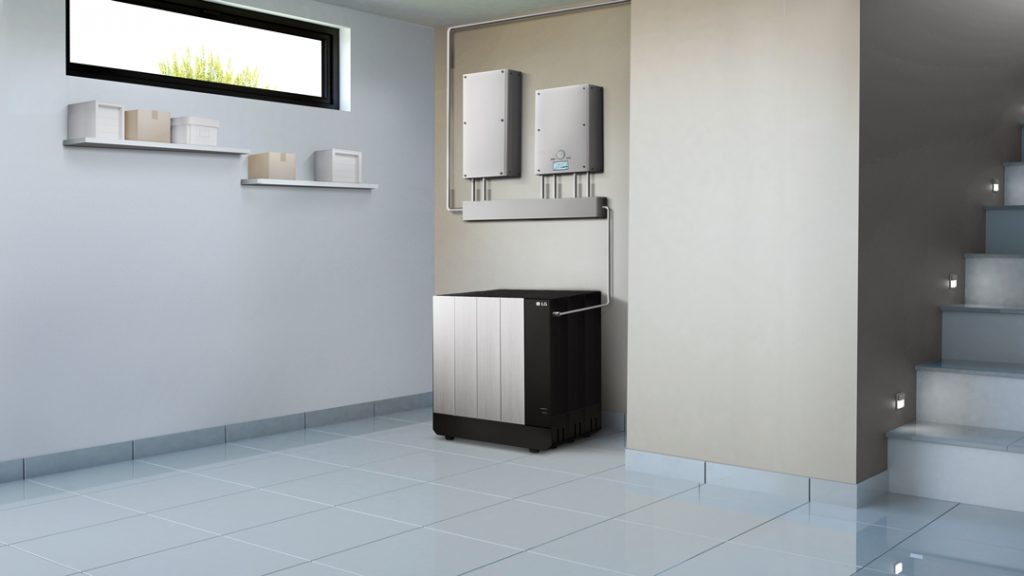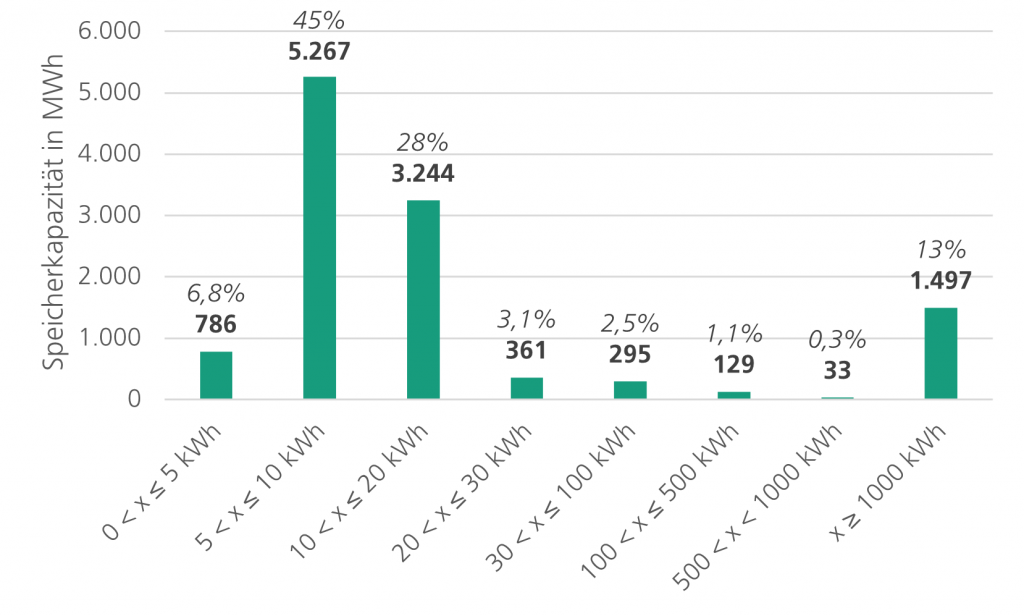Electricity storage: 2024 funding mainly from cities and municipal utilities
Subsidies for PV storage systems significantly reduce the high acquisition costs. In this way, the ideal of every operator of a PV system can come true: save electricity costs with a PV storage system. Find out what funding programs and requirements are available and how much you can save.
Subsidies for electricity storage systems: What is important
- Storage funding in the federal states is, as of March 2024, limited to Berlin and Hesse. In Berlin, there are subsidies of 300 euros per kilowatt hour of storage capacity and in Hesse a 100% development loan.
- Cities in particular will offer attractive funding conditions in 2024. In Wiesbaden, for example, there is a subsidy of up to 500 euros.
- Often, subsidies are only available if operators buy a photovoltaic system and a storage system at the same time. A subsidy is then usually also provided for the system.
- The tax authorities are subsidizing! Although there are no subsidies from the state, there is a large tax saving on the purchase of PV and associated storage systems.
Saving with the storage system - even more so with the PV storage subsidy 2024!
Once installed, electricity storage systems offer great savings potential in the long term: in expensively purchased electricity from the grid and thus in costs. This is because a storage system can consume about 70 to 80 percent of the self-generated solar power yourself. Without storage, it is only about 30 percent. Higher self-consumption of renewable energies from the roof reduces electricity costs and is good for the climate.
Subsidies for electricity storage systems reduce the acquisition costs for the electricity storage system. Learn how to do it!
Only two countries to promote electricity storage in 2024
The following overview shows that only two of the 16 federal states are expected to provide funding for battery storage systems.
| State | Promotion | Background and funding amount |
|---|---|---|
| Baden-Württemberg | ❌ | In Baden-Württemberg, there will be no PV storage subsidies in 2024. |
| Bavaria | ❌ | The programme target of 100,000 applications was already achieved in 2022. Bavaria does not plan to resume the trial. |
| Berlin | ✔️ | Berlin has extended the SolarPlus funding programme until 31.12.2024.
|
| Brandenburg | ❌ | Brandenburg will not offer any funding for electricity storage in 2024. |
| Bremen | ❌ | Bremen does not plan to subsidize electricity storage systems in 2024. |
| Hamburg | ❌ | In Hamburg, photovoltaics have been compulsory since 2024. However, the Hanseatic city does not plan to subsidize battery storage and solar systems. |
| Hesse | ✔️ | In Hesse, there is a subsidy for photovoltaics with storage in the form of a 100% loan with a 1% interest subsidy. However, the WI-Bank's promotional loan does not apply to the electricity storage system alone. |
| Mecklenburg-Western Pomerania | ❌ | Mecklenburg-Western Pomerania does not provide for any electricity storage subsidies in 2024. |
| Lower Saxony | ❌ | Lower Saxony does not have any subsidies for a solar power storage system in its program in 2024. |
| North Rhine-Westphalia | ❌ | In NRW, there will be no storage subsidies in 2024. |
| Rhineland-Palatinate | ❌ | Rhineland-Palatinate will not offer any subsidies for battery storage systems in 2024. |
| Saarland | ❌ | In Saarland, there will be no PV storage subsidies in 2024. |
| Saxony | ✔️ | Through the "Sachsenkredit" program, you can get a loan with a repayment subsidy for systems with and without storage systems with a capacity of 30 kWp or more. |
| Saxony-Anhalt | ❌ | As of February 2024, Saxony-Anhalt is examining how solar and storage subsidies could be realigned. |
| Schleswig-Holstein | ❌ | The actually planned funding program "Climate Protection for Citizens" was stopped by the Federal Constitutional Court on 15.11.2023 due to the budget ruling. |
| Thuringia | ❌ | In 2024, Thuringia will not subsidize the purchase of electricity storage systems. |

Cities have a subsidy budget for electricity storage in 2024
Unlike on the part of the federal states, there are funding opportunities for storage facilities in several cities. It is worth applying. Here is an overview of the attractive municipal funding options.
- Editor's note: It is only an overview and there is no claim to completeness. Therefore, ask your city or municipality whether there is local funding.
- Many subsidies show that photovoltaic systems and electricity storage systems are often only subsidized together.
- Tip: Municipal funding programs are often exhausted very quickly. So submit your funding application quickly!
| City | Program | Type of funding; Conditions |
|---|---|---|
| Dusseldorf | Climate-friendly living and working |
|
| Fribourg | Climate-friendly living |
|
| Cologne | Photovoltaics – climate-friendly living |
|
| Wiesbaden | Solar Power Funding Program |
|
| Stuttgart | Solar Offensive |
|
| Acquire | Electricity storage subsidy Erlangen |
|
| Elmshorn | Climate Protection Fund |
|
| Herford | Promotion |
|
This is how the municipal utilities promote battery storage systems
What interested private individuals unfortunately often overlook in their search for a suitable subsidy measure for their solar storage system are subsidies from the local municipal utilities. However, this subsidy for battery storage can be quite attractive, as the following brief overview shows.
This list is not exhaustive. If your municipal utilities are not involved, it may still be worthwhile for you to ask them for an investment grant. The following examples prove it:
- Stadtwerke Düsseldorf: The funding amount for an electricity storage system is 250 euros per kilowatt hour of battery storage capacity.
- Stadtwerke Kiel: Photovoltaic battery storage systems will be subsidized with a one-time payment of 500 euros with simultaneous PV subsidies - limited in time until 31.03.2024.
- Stadtwerke Bad Pyrmont: There is a one-time fee of 200 euros for a solar system with storage.
- Stadtwerke Sigmaringen: For a solar storage system with a storage capacity of between 3 and 15 kilowatt hours, the one-time subsidy is 250 euros.
- Stadtwerke Solingen: E-mobilists who opt for the complete package of photovoltaic system, wallbox and PV storage system will receive 250 euros per kWh of storage capacity and a maximum of 3,000 euros. The other solar elements are also subsidized.

State subsidies: Electricity storage systems will be empty-handed in 2024
While there is a fairly large range of subsidy programs for energy storage systems at the municipal level, no subsidy from the state is to be expected. According to the latest version, the Federal Funding for Efficient Buildings (BEG) no longer subsidizes photovoltaic systems or electricity storage systems. There are also no subsidy models from the Federal Office for Export Control (BAFA).
The state KfW program 442, "Solar Power for E-Cars", which was intended for photovoltaic systems, wallboxes and solar power storage systems, was sold out very quickly and will not be relaunched.
Financing battery storage with KfW funding
If you cannot raise the sum for the purchase price of the storage system or cannot raise it completely from your own funds, you need a loan. A classic is the KfW loan 270 "Renewable Energies – Standard". This can cover up to 100% of the investment costs. During the repayment-free start-up period, borrowers with KfW funding only pay interest. This is a temporary financial relief. Otherwise, it should be said that the interest rate of the development loan, like other loans, is based on the capital market. Therefore, as of March 2024, it is from 5.21%. The exact annual interest rate is then calculated on the basis of the applicant's personal creditworthiness.
Germany provides indirect funding through the tax authorities
Since January 2023, extensive tax breaks have been in place for photovoltaic systems. Since this month, photovoltaics has been tax-free. Already at the time of purchase, 19 percent sales tax is waived. Furthermore, income tax is waived on income from the EEG feed-in tariff during ongoing operations. You will receive this for feeding electricity into the grid. With your own power supply from the roof, you not only reduce your electricity costs - but also do not have to pay taxes.
This indirect funding pot also includes electricity storage systems: because these can also be purchased at the net price, i.e. without VAT. This reduces the acquisition costs. If these are lower, the purchase of a battery storage system will pay for itself sooner. Also include in your calculation that you can consume about 70 to 80 percent of your solar power yourself with a storage system. Without storage, there are only about 30.

Retrofitting PV storage systems: This is what the subsidy looks like

Some already have, others decide later: The comparison shows what the situation is with the promotion of battery storage systems – if you have it installed directly or if you retrofit it.
- Buying a photovoltaic system and solar storage system together: This is a common case. According to the German Solar Industry Association (BSW Solar), around 81 percent of PV systems were installed together with a home storage system in 2023. This is an advantage for electricity storage subsidies. This is because in many funding offers, it is a prerequisite for the funding commitment that the PV system and battery storage system are purchased together.
- Retrofitting solar power storage systems: According to BSW Solar, about 10 percent of storage installations in 2023 were retrofits. Anyone who decides to add a solar power storage system to their photovoltaic system at a later date can also apply for funding. However, these requirements do not fit every funding program. Here it is important to take a close look at the funding guidelines in advance.
| If you would like to get a precise overview of the possible subsidies for the purchase of a heat pump, use the subsidy information from Effizienzhaus-Online! |
What electricity storage subsidies are available in Austria and Switzerland?
Unfortunately, the funding framework for photovoltaic systems and storage systems in Germany is somewhat incomplete and not necessarily transparent. It is therefore of interest to see how our German-speaking neighbours, Austria and Switzerland, deal with the 2024 electricity storage subsidy.
Promotion of electricity storage systems in Austria
Since the beginning of 2024, there has also been a tax incentive in Austria. This means that photovoltaic subsidies and the promotion of electricity storage systems also run above the zero tax rate. For this purpose, the associated photovoltaic systems must be installed on or in the immediate vicinity of a building.
An alternative funding option is possible in Austria via the "Renewable Energy Expansion Act (EAG)". To participate, applicants must take a ticket from the Abwicklungsstelle für Ökostrom AG (OeMAG). You can use it to submit an application for funding. It is about subsidy rates of 200 euros per kWh of storage capacity.
How Switzerland promotes battery storage
Just like in Germany, there is no PV battery subsidy from the state in Switzerland. Only a few cantons offer subsidies for battery storage systems. For example, the canton of Thurgau offers a subsidy of 1,000 Swiss francs towards the purchase and installation costs. Converted, this is a contribution to the costs of around 1,050 euros.
FAQ
Will battery storage systems be subsidised in 2024?
Yes! There are grants or development loans from cities or municipal utilities and occasionally from federal states.
Which storage systems are subsidized?
Subsidies are available for common electricity storage systems, such as lithium-ion batteries, which are subsidised together with a PV system.
How much funding is available for photovoltaics with storage?
The amount of funding differs depending on the funding programme. While photovoltaic subsidies are often measured per kWp, subsidies for storage systems are often based on the amount of kilowatt hours of storage capacity. The amount of the electricity storage subsidy is between 100 and 300 euros per kWh.
source : Electricity storage: 2024 funding mainly for cities (effizienzhaus-online.de)
